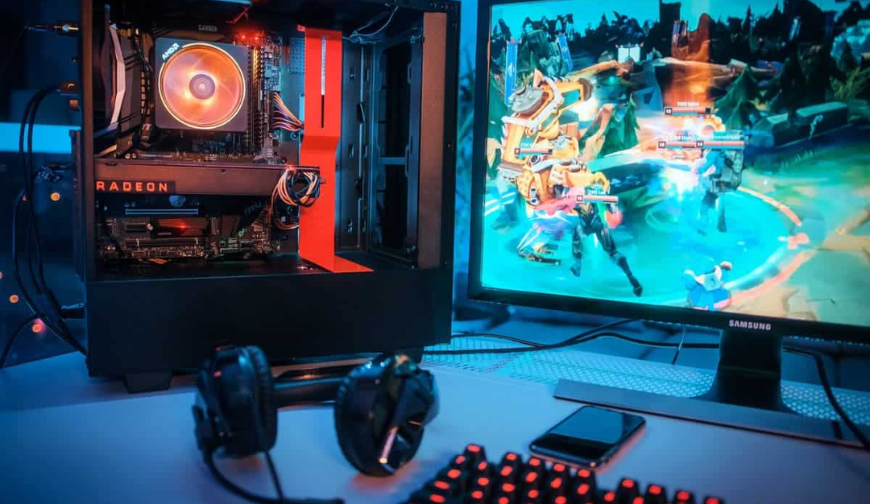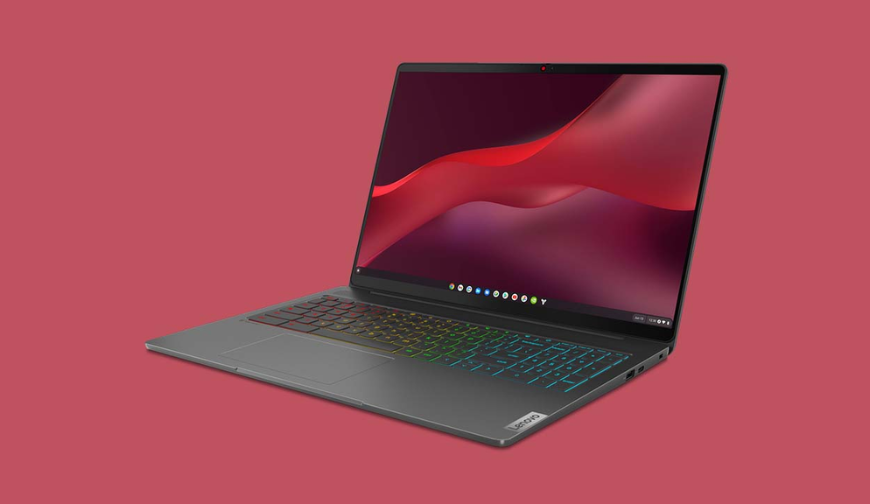A lot of new gaming PC buyers and builders think the graphics card or GPU is the sole component dictating gaming performance. However, the CPU or the Central Processing Unit is truly the computer’s brain, and the component doing all the math.
Without a capable gaming CPU or processor, your graphics card will only be able to perform at a certain level and will then face a bottle-neck when your CPU can’t keep up with the workload on its end.
A poorly performing CPU is like having a weak link in your team – it’s what keeps everyone from performing up to their full potential. Hence, we can’t stress enough on the importance of getting a proper processor for gaming.
That being said, choosing the best processor for gaming is not very simple and depends on your budget and existing build (motherboard support) etc. The two major players in the CPU market are Intel and AMD and both companies regularly come up with the latest technologies, leading to reduced power consumption and heat generation while delivering maximum performance.
When you look at the available CPUs in the market, you’ll come across dual cores (2 cores), quad cores (4 cores), hexa cores (6 cores) and even octa cores (8 cores) – but more cores do not necessarily translate into the best CPU for gaming. Most games will run just fine on dual and quad core processors if you have a good gaming graphics card in your rig.
To help you out with all this, we’re putting together this list so you can pick out a gaming CPU that meets your requirements, so please feel free to comment below with any questions you may have.
Finding the Best Processor for Gaming in 2016
#1. Intel Pentium Anniversary Edition G3258
This Intel processor is the best budget gaming CPU available right now. Not only is it insanely cheap at $66, but is also unlocked and overclockable (we will be writing a guide on overclocking soon). The CPU’s base clock frequency is 3.2 GHz but it can overclocked up to 4.5 GHz without needing dedicated cooling or even tweaking with voltage settings.
The only downside to this processor is that it’s a dual core chip with no hyper threading or turbo modes. However, since most modern games run fine on dual core set ups, this chip, even though not a proper gaming CPU does okay. Just don’t pair it with top-end gaming gear because this CPU is most suited to budget builds.
View Deal
#2. AMD FX-8300
A great budget gaming CPU by AMD, the FX 8300 comes unlocked, allowing clocks up to 4.2 GHz with proper cooling. However, do note that at the end of the day this is a budget CPU that focuses on delivering decent performance at very low costs.
That being said, if you’re looking to build a cheap gaming rig, this can be your processor of choice at a bargain price right now.
View Deal
#3. Intel Core i3 6100
While the Intel Core i3 has traditionally been seen as a low-end lineup of processors, it gives some of the best bang for buck and the latest, i3-6100, is based on Intel’s Skylake architecture, which means less power consumption while getting more work done every cycle than its predecessors.
Clocked at 3.7 GHz, the i3 6100 has 2 cores and hyper-threading technology, which makes it capable enough to run most modern games on decent settings and get playable frame rates. Currently, it is one of the best gaming processors if you are on a budget but don’t expect it to power any high-end gaming rigs.
View Deal
#4. Intel Core i5 6600K
The Core i5 is a significant step up from the i3s when it comes to performance, and we believe i5 CPUs to be more than sufficient for delivering decent gaming performance in modern titles.
Now, replacing the 4th generation i5-4690 as a popular choice comes the i5 6600K. Based on the Skylake architecture, this gaming CPU is unlocked for maximum performance and delivers a lot of bang for buck with it’s mid-range price tag.
The stock speed is 3.5 GHz, which goes up to 3.9 GHz on Turbo, while overlocked speeds go up to 4.5 GHz with proper cooling. All in all, for the price, this is the most economical Core i5 chipset that delivers unlocked performance for gaming enthusiasts.
View Deal
#5. Intel Core i7 6700K
With the Skylake architecture coming into play, the Core i7 6700K becomes our top recommendation as the best processor for gaming with great value for money. While it’s not cheap, the 6700K delivers even more than it’s predecessors with every clock cycle thanks to a smaller chipset, generating less heat as well.
The 6700K comes unlocked, and while the stock speed is 4.0 GHz, you can easily take it up to 4.5 GHz with a good LG 1151 motherboard. If you’re looking for a top level performer that is easily overclocked and delivers decent gaming performance, this is definitely a good bet.
View Deal
Frequently asked questions about gaming processors
Now that we’ve listed our best gaming CPUs of 2016, it’s time to answer the most frequently asked questions by beginners.
Q1. Does a faster CPU mean faster games and more frames per second?
Not necessarily. The CPU is like the brain of your gaming rig, it processes information and instructs components to act and perform in a certain way to deliver a specific result. If your processor is slow, these commands will be calculated and delivered slowly to all components, resulting in lag and stutters.
However, after a certain level, it becomes regardless how fast your CPU works, because other components are also playing an important role – for instance your graphics card, which is integral for good gaming performance.
Hence, instead of focusing on buying the most expensive CPU for gaming, you need to balance your build where you put together components which work well with each other instead of becoming bottlenecks.
Q2. Can I just buy any CPU and use it with my existing PC?
No, you can’t just buy any CPU and use it with your existing PC. CPUs or processors need to be compatible with the components in your computer, which is why you need to have a motherboard that supports your CPU.
You can check for compatibility with the socket number, for instance, most new CPUs right now are built for the LG 1151 socket – so if your motherboard also has an LG 1151 socket, any LG 1151 processor should fit and work fine.
Q3. How do I overlock my CPU?
This is a bit tricky and there is no one answer fits all scenario here. Generally however, CPUs can be overlocked by increasing their bus frequency or multiplier, coupled with an increase in voltage to keep up with the power demand of higher performance.
CPUs that have ‘K’ in their name are unlocked – which means their multiplier is unlocked and you can easily overclock them. Non-K CPUs are those which are locked, and while they can also be overclocked with a motherboard that supports overclocking, you won’t get as much extra performance out of them as compared to an unlocked CPU.
Is it dangerous? Yes. Since overclocking requires increase in CPU voltage, there are chances that you can fry your chipset by operating it beyond it’s safe range. However, the whole process hinges on trial and error and we will be writing a complete CPU overclocking guide very soon.
Q4. Do gaming processors need to be compatible with gaming graphics cards?
The simple answer for this is ‘not really’. Well, the processor and motherboard in your rig decide which graphics card you can use, for instance PCIE 2.0 or 3.0 etc, but graphics cards are generally backwards compatible and only the performance takes a hit – they still work with older chips. The main thing to look out for is the power supply however, because that is what a good graphics card needs to perform at maximum compatibility. We will be writing more on this in our guide about the best PSUs you can buy for your gaming rig.
Meanwhile, this is all for now. We hope you like our list of the best gaming CPUs and buy one of these processors to complete your gaming rig. If you have any questions or concerns, please feel free to comment below and we will do our best to assist you.


